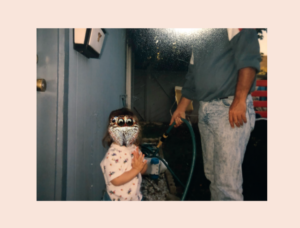Dear Reader,
I am unsure about how to start this, to be honest, except for by saying that honesty is the best policy. And the first person you have to be honest with is yourself. Maybe you won’t find yourself in love with the wrong person. Maybe you will but will learn from it anyway.
I was in love with my best friend before I knew it. I was his before I knew what that meant, but I never told him. I wonder what would have happened if I did. I wonder if he loved me back and we simply missed our shot. I wonder how our stories would have played out if we were both willing to tell our truths. Now we have moved on and away and will never know.
Inspired by the lyrical yet haunting quality of Bluets by Maggie Nelson as she puts her heart on the page, this manuscript originally started as a book of letters of things I hadn’t said to him but wished I had; letters had always been how we communicated. Rarely did we talk on the phone verbally but our texts and AIM messages spoke for themselves. I saved them and looked at them often, responding to myself and the time in short snippets across time.
The book in the final format explores that love and asks the questions I was too scared to ask him but in poetry format. I also bring you through the end of our relationship by asking myself the hard questions. I break myself from my comfort and quiet, both in writing and sharing, and I hope this inspires you to do the same, to be your truest selves.
Thank you to everyone who reads this book. I hope you continue to find yourselves a little in love, a little lost, and a little loved.
Yours,
Ashley Elizabeth
Learn more about you were supposed to be a friend
